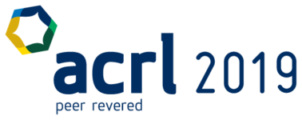Session Description:
Teaching and Learning Centers in higher education are a growing force for educational development and changing the culture of teaching and learning. Librarians can transform their role as educators through joining forces with these Centers and developing a repertoire of approaches for becoming strategic partners, including the use of the ACRL Framework for Information Literacy as a catalyst for conversations and collaborations. This paper presents survey results from higher education teaching and learning centers across the U.S. which explore the involvement of librarians and perceptions of their contributions. These results point to ways for implementing deeper teaching and learning collaborations.
